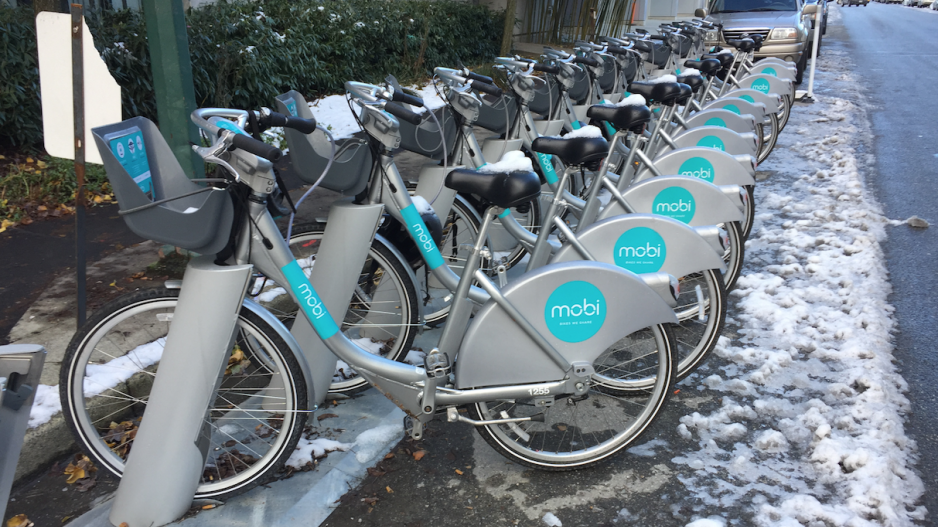Vancouver has seen a steady decline in the percentage of residents who own cars at a time when the cost to operate vehicles in the city has risen and the number of parking stalls has shrunk.
Insurance Corp. of British Columbia (ICBC) data provided to Business in Vancouver showed that 270,000 passenger vehicles were registered in the city of Vancouver at the start of 2016. That’s 3.8% more than at the start of 2012, but Vancouver’s population during that same period rose 5.2% to 666,996, according to BC Stats.
These statistics jibe with a trend that the City of Vancouver has identified in its annual surveys of 2,500 Vancouverites conducted by CH2M and Mustel Group. In 2015, the city’s survey showed that, for the first time, 50% of the trips that Vancouverites made were by foot, bus or bicycle. That is up from 47% of trips using those modes in 2013.
Simon Fraser University city program acting director Andy Yan is eager to see the results of the 2016 census, which asked about transportation modes. He expects that data to be released in November and be more reliable than the city’s survey, given the census’ large sample size.
Still, Yan said he believes that car use in Vancouver is on the decline and that recent rapid-transit expansions, such as the Evergreen Line to Coquitlam, will encourage even more people to get out of their cars.
“The City of Vancouver does extraordinarily well in encouraging people to use other means of transportation than the car to go to work,” Yan said.
“When you get further out into the region, the percentages of people using modes of transportation other than the car are a lot less.”
The rising cost of operating a passenger vehicle has played a role in deterring Vancouverites from making those trips, Yan said.
ICBC projects that insurance premium hikes will be an average 4.9% in 2017.
Gas prices have recently rebounded to around $1.35 per litre, but that’s still lower than all-time-high gas prices above $1.50 per litre in 2014.
Parking costs, however, have been on the rise. The city has introduced parking meters in more areas of the city while simultaneously removing parking spaces to make way for the Mobi by Shaw Go bike-share program. A new fee-calculation mechanism, whereby different parking spots will have varying hourly rates depending on demand, is to be rolled out in the first quarter of 2017.
The average price hike for a parking spot is yet to be determined but a 2016 staff report to city council noted that parking revenue to the city would rise in 2017 from the anticipated $55.1 million in 2016.
“Even if there are fewer on-street parking spaces [for privately owned vehicles], the number of car-share vehicles has doubled in the last couple years,” said Dale Bracewell, the city’s manager of transportation planning. That innovation may increase car use even as car ownership declines.
Bracewell pointed to the city’s annual surveys and said that 26% of adult Vancouverites had subscriptions to car-share programs in 2015. That is up from 20% in 2014 and 13% in the 2013 survey.•




